I'm using itertools.combinations() as follows:
import itertools
import numpy as np
L = [1,2,3,4,5]
N = 3
output = np.array([a for a in itertools.combinations(L,N)]).T
Which yields me the output I need:
array([[1, 1, 1, 1, 1, 1, 2, 2, 2, 3],
[2, 2, 2, 3, 3, 4, 3, 3, 4, 4],
[3, 4, 5, 4, 5, 5, 4, 5, 5, 5]])
I'm using this expression repeatedly and excessively in a multiprocessing environment and I need it to be as fast as possible.
From this post I understand that itertools-based code isn't the fastest solution and using numpy could be an improvement, however I'm not good enough at numpy optimazation tricks to understand and adapt the iterative code that's written there or to come up with my own optimization.
Any help would be greatly appreciated.
EDIT:
L comes from a pandas dataframe, so it can as well be seen as a numpy array:
L = df.L.values
